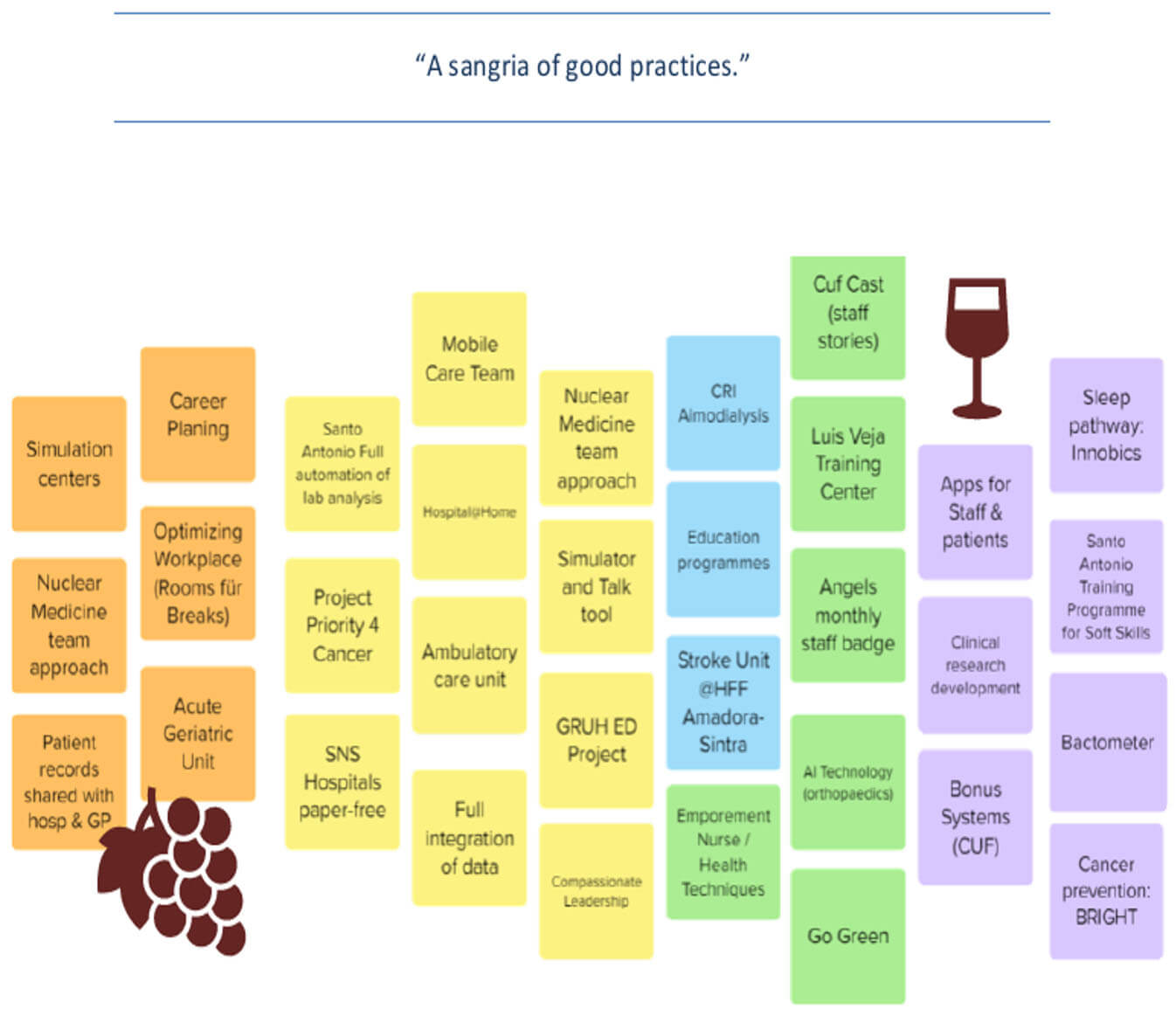
HOPE Exchange 2024 programme had 121 participants from 19 countries around Europe where they were placed in hospitals or healthcare setting in another country to exchange knowledge and expertise across healthcare services. HOPE Exchange theme for 2024 was “Keeping our health workforce,” and participants were asked to observe how hospitals and healthcare settings are working to meet challenges in retaining health and social care staff.
Grainne McCann, Sligo University Hospital Manager, took part in this programme where she was placed in Lisbon, Portugal for the duration of the programme. She said that in Portugal the government had started a process of reform of their healthcare system. This reform aimed to expand access to quality care by integrating primary healthcare, hospitals and continued care into Local Healthcare Units. In addition, the reforms targeted healthcare workforce deficits.
The Portuguese Healthcare System serves a population of 10.5 million and had the highest aging population in Europe. Their health services faced many challenges including low salaries, generational shifts, increasing clinical demands and resource drain due to expansion of private healthcare. Recognition of the need to invest in health prevention had led to a recent 2030 National Plan.
Grainne was placed in two large hospitals in Lisbon, Garcia de Orta in Almada region of Lisbon and Centro Hospitalar Universitario de Lisboa Central which has eight Hospitals in central Lisbon. She heard about employers dealing with staff burnout and aging workforce, along with increasing demands on work life balance, remuneration rates and below average number of nurses in Europe.
During this Exchange Programme, Grainne was part of a team of twelve participants from around Europe who were placed in five different areas in Portugal. She said that they observed many areas of good practice to support the retention of healthcare workforce. These fell under themes such as job satisfaction, leadership, empowerment, research and sustainability.
Regarding job satisfaction, empowerment and having “meaningful work”, Grainne saw an example of a national business model, Integrated Centre of Responsibility (CRI) which provided a level of automony, accountability and recognition to specific services to improve access to care.
Examples of teamworking, growth, innovative use of technology were seen in many different ways both from use of patient apps, staff apps, integrated healthcare records and young doctors leading their services through use of robotic and modernised equipment together with AI tools.
Using technology, integrated records and dynamic leadership culminated in the development of home hospitalisation/hospital at home, which was a feature across many hospitals in Portugal.
Approaches to promote health and wellbeing among the health workforce itself including initiatives such as “caring for those who care”, family friendly hospitals, health promotion, models of dual roles, remote working and so forth. All of these focussed on recognising, supporting and retaining their workforce to meet the challenges faced within healthcare services in Portugal.
Across the team of twelve who visited Portugal, Grainne said they saw many different initiatives and approaches within the healthcare services. Some of these were driven nationally, while many others were driven by staff coming together at local level to look at how they could improve what they did to make their service a “meaningful” place to work. Grainne described these as:


